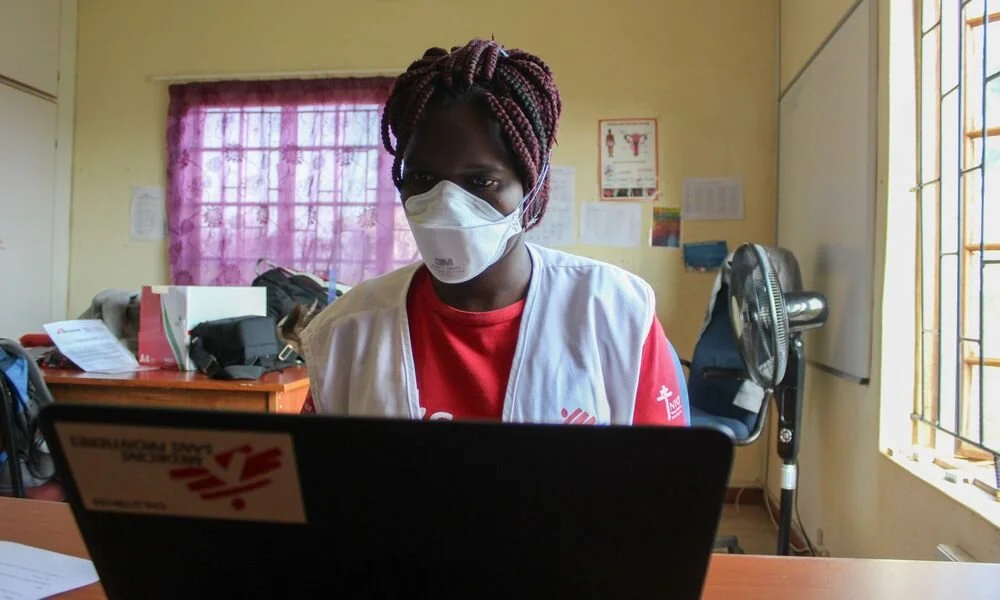MSF Innovation Newsletter May 2021 –Operationalising Health Innovation
About a week ago, the world reached the milestone of administering +1 billion doses of COVID-19 vaccines!
Innovations such as advances in mRNA technology and speedier manufacturing platforms have enabled the vaccines to be developed and rolled out at a record speed. Unequal distribution now highlights global disparities and throws a shadow over this remarkable scientific success. As of May 4, only 0.3 per cent of doses have been administered in low-income countries.
With many vaccines approved, it is time that the world pool its innovative power to ensure that equity is at the centre of the vaccine rollout as we advance. New monitoring and tracking technology and nascent cold chain management methods can streamline vaccine transports and control that vaccine deliveries arrive safely at their destination. For more information about how MSF pushes for equitable access to COVID-19 vaccines, visit the MSF Access Campaign’s website here and follow the debate for lifting intellectual property protections to allow for increased vaccine access globally.
One of the hard-won lessons of this pandemic is the true power of telehealth. Telehealth has the potential to address many of the key challenges in providing health services during the outbreak of COVID-19 and beyond. We present the MSF Telehealth Toolkit in more detail further down in this newsletter and in a new article on the MSF SIU website. The Toolkit will also be demoed during the MSF Scientific Days 2021 that take place online between May 18 and 20, you can still register for the event!
Beyond access another key concept that reoccurs in the health innovation space is operationalisation. The innovation case highlights in this edition of the newsletter provide a glimpse into how MSF is working to embed a culture of innovation and demystify the process of implementing and scaling innovative solutions. From the Solar AC project platform which enables MSF logisticians to navigate more environmentally friendly practices to the Patient Multimedia Toolkit which supports MSF teams to leverage the best possible health promotion channels, recent efforts for the MSF Innovation community have been very much cognisant of the need to empower all individuals in the organisation (not just those with innovation in their titles) to improve the efficiency of the movement.
Happy reading!
Innovation Highlights from the MSF Movement
Case Highlight 1 - Patient Multimedia Engagement
Overview: The Patient Multimedia Project was launched with MSF Transformational Investment Capacity (TIC) and led by OCBA Case Manager Anne Janssen with support from the MSF Sweden Innovation Unit. The PME project aimed to support health promotion activities leveraging different forms of media channels (e.g. radio broadcast, WhatsApp or SMS campaigns, Facebook groups etc.). This effort was piloted for one year in two locations, Mexico and Colombia, in response to COVID-19 needs in 2020.
In Mexico, a mental health support line was launched to support migrant populations on the move and those who were exposed to violence and may be in need of MSF support. A toll-free hotline was set up in addition to a WhatsApp number. Facebook campaigns were also set up to raise awareness of the service. These channels were carefully selected after surveying a sample of the target population to better understand their needs and most used communication channels. The pilots launched provided validation of the openness and efficacy of multimedia efforts for health promotion and population engagement.
Have a look at the 3-minute summary movies made by the Mexico and Colombia missions:
Next steps: Based on the insights gained through the pilots, the PME team is currently working on producing a toolkit to guide field teams in achieving their operational goals and supporting patients and populations by using new media. The toolkit will be available by the end of this month to everyone in the MSF movement that wants to use digital media to support operational objectives.
Email anne.jansen@naiorbi.msf.org for more information.
Case Highlight 2 - MSF Telehealth Toolkit
Overview: The COVID-19 pandemic has severely restricted patients ability to safely access healthcare and support, and challenged MSF's ability to provide crucial healthcare services as of early 2020. Effectively addressing the needs of COVID-19 patients and maintaining routine life-saving care in over 70 countries, where health systems are often facing severe resource limitations, requires the support of new approaches. That's where real-time telehealth consultations come into play.
Catalysed by the current pandemic, two-way telehealth communication with patients is being increasingly recognized as one such support method to help expand access to, and delivery of, healthcare and health information. In September 2020, a rapid review of MSF activities as a part of the research for the MSF Telehealth Toolkit identified there were over 20 telehealth initiatives of different forms identified across the MSF Movement. Through interviews with teams involved in these telehealth initiatives, it was clear that there was a need for further standardised guidance and information sharing between projects. The MSF Telehealth Toolkit was created to distil the pathway to Telehealth success and centralise the MSF approach.
For more in-depth information about the toolkit, check out this recent article on the MSF SIU website.
Next steps: The Telehealth Toolkit was originally made available to MSF users in the form of a document and adopted by a number of teams seeking to launch or improve telehealth services. A more user-friendly version is now being developed and will be available to view as a part of the innovation demos at the MSF Scientific Days on May 20. Register to join here »
Case Highlight 3 - Solar AC Tool
Overview: Air conditioning is estimated to account for 35%-50% of MSF’s total fuel use. It is essential where medical needs call for controlled temperatures like in pharmacies, operating theatres and laboratories.
AC usage is predicted to increase considerably in coming years both due to climate change and MSF’s aim to improve our facilities for both patients and staff alike. The Swedish Innovation Unit identified a hybrid air-conditioning system that can operate directly on solar power and, when needed, rely on a diesel generator. Initial trials were carried out in Haiti where five units were installed.
The Solar Air Condition Tool is the result of a partnership between MSF France, the innovation unit in MSF Sweden and Arup. The tool aims to speed up the scaling, dissemination and overall usage of solar air condition units at the same time that we do so by making conscious and data-driven decisions.
Next steps: MSF logs are being engaged to be beta testers of the platform. Email siu@stockholm.msf.org if you are interested in getting involved.
External Resource Highlight
LSHTM WEBINAR: Aiming for net-zero health operations: Approaches and interim results of the Aga Khan Health Services
This webinar was part of LSHTM Planetary Health Week 2021, which took place between 19 and 23 April.
Healthcare services are necessary for sustaining and improving human well-being, yet they have an environmental footprint that contributes to environment-related threats to human health. Thus far, the environmental impacts of healthcare have received relatively little attention.
In this talk, Dr Fawzia Rasheed interrogates the carbon footprint of healthcare and explores how the sector can reach net-zero. Dr Rasheed presents innovative initiatives within the Aga Khan Health Services (AKHS) where field staff have received training on examining and responding to their carbon footprint.
Watch the webinar here »
What We're Listening To
Pomegranate Health
Ep57: The Art of Telehealth
Dreadful as the coronavirus is, the bigger consequences of the pandemic may be on the disruption to routine healthcare. Consulting patients by video or phone can be a way to keep healthcare ticking over. This podcast goes over some of the tech support questions that clinicians have been asking during the current crisis. Further, it discussed the art of building trust with new patients and conducting a physical examination through telehealth. Listen here »
How to Vaccinate the World
Ep20: What we’ve learned
It’s now about four months since the World Health Organization (WHO) authorized the first vaccine for emergency use and rollouts began in countries like the United States and the United Kingdom. In this penultimate episode of the ‘How to Vaccinate the World’ series, a number of high-profile guests discuss what we have learned so far and how we can use these lessons to make the vaccine rollout more efficient and equal as we advance. Listen here »
Until Next Time 👋
If you are a new subscriber, welcome! You are in good company of 500+ health innovators from MSF and beyond, based around the world.
As always we would love to hear of any global health innovation insights or thoughts. Anything you would like to feature in the next newsletter? Reach out with any questions or comments on siu@stockholm.msf.org or simply reply to this email - we'd be delighted to continue the conversation!
Have a restful weekend,
The MSF Sweden Innovation Unit Team & MSF Innovation movement





